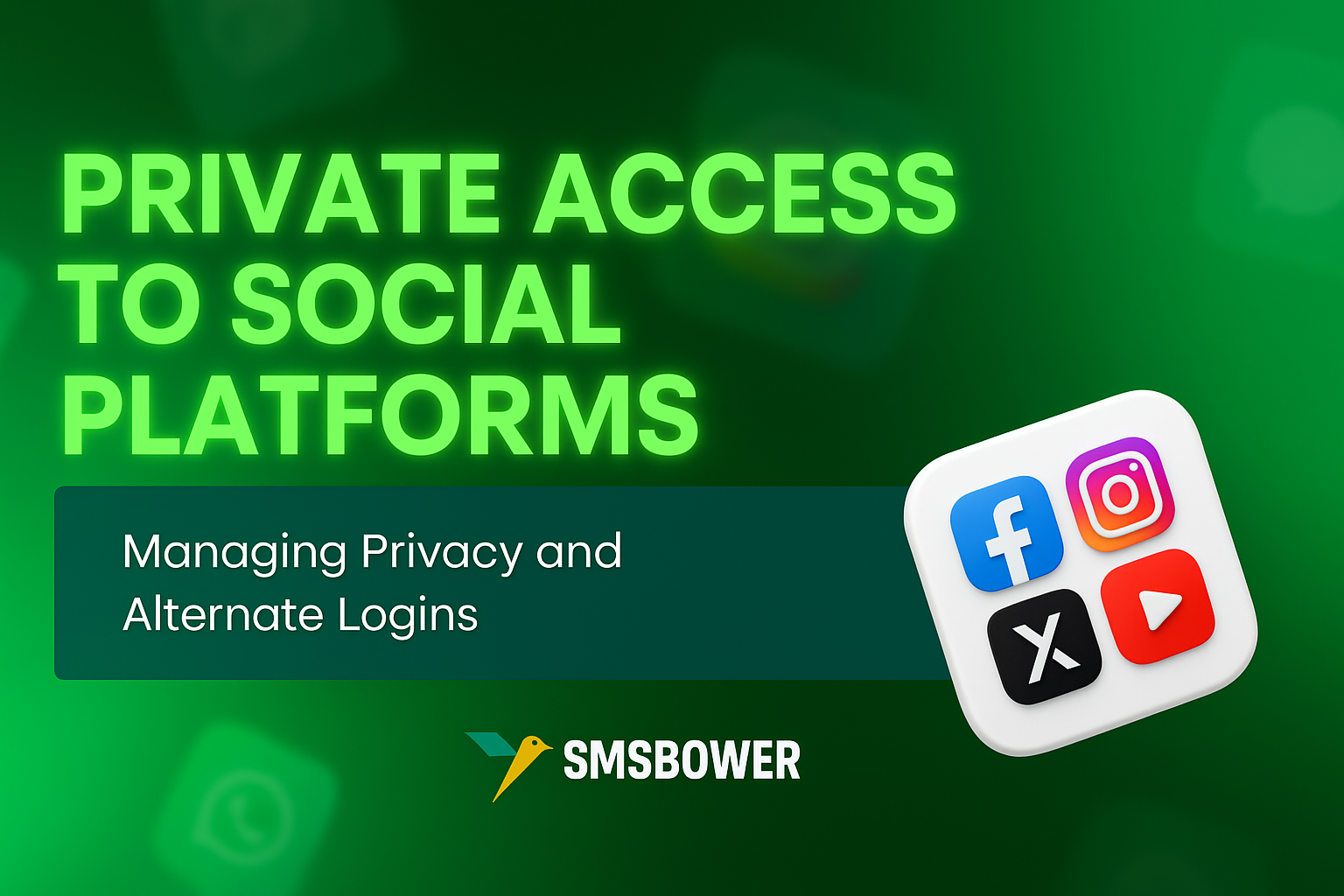How to Browse Social Media Anonymously Using Secondary Accounts
In 2025, privacy on social media has become a luxury — one that can be lost with a single click. Every like, view, or tap turns into data that’s collected, analyzed, and sold. But there’s a way to stay active online and keep your identity under wraps.
Why Anonymity on Social Media Matters
Modern platforms are powerful surveillance tools. They track your activity both in-app and across the web, building a detailed digital portrait of you.
Using secondary accounts helps split your online behavior. It’s useful if you're researching competitors, testing ads, or simply exploring content without messing up your main feed or ad targeting.
How to Create an Anonymous Account
 Most platforms today require phone or email verification. To bypass that, use virtual numbers from SMSBOWER.
Most platforms today require phone or email verification. To bypass that, use virtual numbers from SMSBOWER.
Quick Guide:
- Sign up at smsbower.org
- Add balance
- Choose a platform and country
- Get a temporary number in your dashboard
- Use it during registration, get the code, complete activation
Each number is valid for a single code. Re-verification later might not be possible, so avoid using this for long-term accounts.
Temp Email: Simple & Handy
For full anonymity, you’ll need a temporary email too. SMSBOWER offers two options:
- Paid Gmail temp mail — ideal for platforms that block obvious temp domains
- Free temp mail — no signup, instant inbox access
Only use these for one-time signups. Lose access to the inbox — and you lose access to the account.
How Not to Blow Your Cover
Creating an account is just step one. To stay anonymous, follow a few simple rules:
- Clear cookies, use incognito mode or a separate browser
- Strip metadata from photos (GPS, timestamp, camera model) before uploading
Behavior Gives You Away Too
Platforms don’t just analyze tech data — they study how you behave. Style, schedule, interests. Want to stay untraceable?
- Vary your login times
- Use a different tone and vocabulary
- Avoid following the same pages as your main account
Managing Multiple Profiles
Stay organized:
- Keep a table with your accounts, numbers, and emails (offline only)
- Use a password manager with isolated storage
- Stay active — abandoned accounts may get deleted
What About the Law?
Anonymous accounts aren’t illegal, but they may break platform rules. The key is: don’t use them for fraud or spam.
Watch local laws — some countries now require online ID verification.
Platform-Specific Tips
- Twitter (X) — more tolerant, but flags odd activity
- Facebook — tracks IP, contacts, location, and photos
- TikTok — analyzes behavioral patterns
- LinkedIn — prefers real data, use minimal but realistic info
Alternatives to Extra Accounts
- Many platforms let you browse public content without logging in
- Social media monitoring tools (usually paid, business-focused)
- Using a friend’s account — risky, may cause both accounts to be blocked
What’s Next
Detection algorithms keep getting smarter. But so does public awareness about privacy.
New platforms are being built with data protection in mind. Decentralized social networks and blockchain tech may soon give users more control over their identity.
Anonymity isn’t a gimmick — it’s a digital hygiene skill. Every click leaves a mark. Knowing how to stay “invisible” is both a shield against surveillance and a path to freedom. The real question is: are you ready to trade comfort for control?
